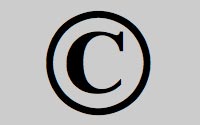Obama Admin Asks High Court To Reject File-Sharer's Appeal
- by Wendy Davis @wendyndavis, February 12, 2013

The Obama administration is
urging the Supreme Court to reject peer-to-peer user Jammie Thomas-Rasset's bid to appeal the $220,000 verdict against her obtained by the record industry.
In court papers filed this week,
the U.S. Solicitor General says the Supreme Court should decline to hear Thomas-Rasset's case, arguing that it doesn't raise any unsettled constitutional issues. The Obama administration contends that
Thomas-Rasset's case "is not an appropriate vehicle to decide" whether a six-figure verdict for non-commercial file sharing violates the Constitution.
Thomas-Rasset was among 12,500 people
sued by the Recording Industry Association of America during its five-year litigation campaign against individual file-sharers. Many of the other defendants agreed to resolve the allegations by paying
four-figure settlements, but Thomas-Rasset is one of just two people who took her case to a jury. (The other person to go to trial, Joel Tenenbaum, also lost; a jury ordered him to pay $675,000 for
sharing 30 tracks.)
A jury found Thomas-Rasset liable for infringement and ordered her to pay $220,000, or $9,500 per work infringed. U.S. District Court Judge Michael Davis vacated that
award and ordered a new trial for reasons unrelated to the damages.
A second jury returned an even higher, seven-figure verdict, which Davis slashed to $54,000, or three times the statutory
minimum. The copyright law calls for damages ranging from $750 to $150,000 per work. But the RIAA demanded a third trial, which it was allowed to do for procedural reasons. Those damages also were in
the seven-figure range. Davis cut that award to $54,000 as well, ruling that anything higher would be unconstitutional.
Thomas-Rasset and the RIAA appealed to the 8th Circuit Court of
Appeals, which reinstated the original $220,000 award last September. The appellate court said in its ruling that a six-figure award was not unconstitutionally excessive, but that a larger award might
have been. "If and when a jury returns a multimillion-dollar award for noncommercial online copyright infringement, then there will be time enough to consider it," the court said in its ruling.
Late last year, Thomas-Rasset filed a petition asking the Supreme Court to hear the case. She argues that the $220,000 verdict is arbitrary and has no relationship to any actual damages that
she might have caused the record industry.
The Obama administration counters in its brief that statutory damages in copyright cases don't "simply redress a private injury" but also
"vindicate an important public interest, in particular, the exclusive rights conferred by a copyright."
"Congress's judgment as to the appropriate amounts is entitled to deference," the
administration argues.


